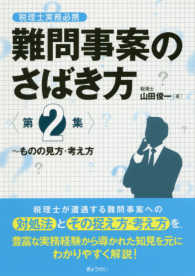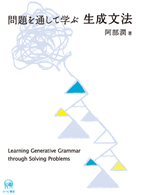- ホーム
- > 洋書
- > 英文書
- > Psychology
Full Description
This book provides original evidence arguing for dignity as an indicator of public health, by offering a scientific framework for measuring dignity and its social determinants. Hitlin and Andersson show that dignity can be efficiently measured by using simple survey items that ask individuals whether there is "dignity" in their life or in how they are treated by others. National survey data show that unhappiness, sadness, anger, and lower general health are far more common for those reporting undignified lives. These differences in reported dignity come from inequalities in social and economic resources and from experiences of disrespect, threat, or life stress. Social groups with less power generally report lower levels of dignity linked to these multifaceted resource and stress inequalities, which are examined throughout the book. Hitlin and Andersson show that dignity possesses universal value for health and well-being in America, providing a scientific basis for collective consensus and social inspiration.
Contents
Acknowledgments
Introduction
More than a Feeling: Dignity and Health Inequalities in America
Chapter One
A Wide-Ranging Tour of Perspectives on Dignity
Chapter Two
Seeing Circles: Dignity as a Public Health Issue
Chapter Three
Beyond Reason: Finding Dignity in Social Relations
Chapter Four
American Capitalism and its Multifaceted Links to Dignity
Chapter Five
Measuring Dignity Subjectively: Methodology for 2017 and 2021 Gallup Data
Chapter Six
Dignity as an Efficient Indicator of Social and Moral Integration
Chapter Seven
Is a Dignified Life a Healthier Life?
Chapter Eight
A Resource-Based Framework for Analyzing Levels of Dignity
Chapter Nine
Inequality and Stress: Charting Dignity During Social Adversity
Chapter Ten
One Polarized Nation: Dignity Across Political Ideologies
Conclusion
Moving Forward: Dignity's Role in Collective Consensus and Social Inspiration
References
Index








